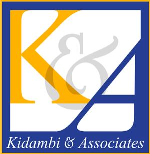- On September 27, 2019, Immigration and Customs Enforcement updated and provided policy guidance on how to determine whether a student’s practical training is in an area “directly related” to the student’s major area of study. This is in keeping with the regulations at 8 CFR 214.2(f)(10)(ii)(A) and is applicable to both CPT and OPT employment.
The regulation specifically states:
(10) Practical training. Practical training may be authorized to an F-1 student who has been lawfully enrolled on a full time basis, in a Service-approved college, university, conservatory, or seminary for one full academic year. This provision also includes students who, during their course of study, were enrolled in a study abroad program, if the student had spent at least one full academic term enrolled in a full course of study in the United States prior to studying abroad. A student may be authorized 12 months of practical training and becomes eligible for another 12 months of practical training when he or she changes to a higher educational level. Students in English language training programs are ineligible for practical training. An eligible student may request employment authorization for practical training in a position that is directly related to his or her major area of study. Emphasis supplied.
For STEM OPT, the regulation is a bit more restrictive. As opposed to “major area of study”, it requires the opportunity be directly related to the degree that qualifies the student for such extension” (8 CFR 214.2(f)(10)(ii)(C)(4)); the relevant portion of the regulation states:
The STEM practical training opportunity that is the basis for the 24-month OPT extension under this paragraph (f)(10)(ii)(C) must be directly related to the degree that qualifies the student for such extension, which may be the previously obtained degree described in paragraph (f)(10)(ii)(C)(3) of this section. Emphasis supplied.
The Designated School Official who makes the recommendation for CPT/OPT is tasked with determining the direct relationship. However, this cannot be done merely based on the employer’s “type of business”. Instead, the DSO must look at the job duties of the position to determine whether the position would be directly related to the student’s major area of study. This is very similar to the process employed by the USCIS when determining whether a position rises to the level of a specialty occupation. In other words, not just the job title, or the employer’s nature of business, but the job duties of the position and how it relates to the student’s major area (field) of study.
The policy guidance provides an example of the complexity of this determination:
For example, when a student who graduates with a degree in music lists his/her employer as a restaurant. There may not appear to be a direct relationship with the degree, but the student could be employed as a musical entertainer. Conversely, a DSO should not assume a direct relationship just because a student with an accounting degree reports working at an accounting firm. Instead, students must describe their job-related duties and explain how those duties relate to their major area of study.
In March 2018, the SEVP portal was further enhanced to allow students to directly explain how their employment relates to their major area of study.
The onus on providing a description of the job opportunity and how it relates to their major area of study, rests with the student. The DSO is required to, on a case by case basis, review the explanation and documentation provided by the student for a “logical connection between the duties involved in the practical training opportunity and the student’s major area of study.” Although not required, the DSO could ask for additional information/documentation to make the determination. The following describes the various scenarios where a determination of “directly related” should be made:
- Students on Pre-Completion OPT:
DSO is only required to collect and retain a written explanation from the student on how each OPT employment opportunity directly relates to their major area of study. - Students on Post-Completion OPT:
DSO is required to inform the student that he/she can only accept opportunities directly related to the student’s major area of study. Additionally, the student is responsible for reporting employment details and how it relates to the major area of study to the DSO in writing. - Students on STEM OPT Extension:
Students are required to submit a completed and signed Form 1-983, “Training Plan for STEM OPT Students.” DSOs may direct students to report their OPT information via the Portal.
The determination of whether a job opportunity is directly related a student’s major area of study (and in the case of STEM OPT students directly related to the degree), requires both the student and the DSO to work collaboratively to comply with new policy guidelines.
Whether this policy change leads to a more restrictive interpretation of whether a job opportunity is truly one that is related to a student’s major area of study is yet to be seen. However, if recent H-1B policy changes[1] are any indication of things to come, it can only mean a more restrictive interpretation of which job opportunities would qualify under this standard.
[1] USCIS drastically changed its policy following Defensor v. Meissner and what constitutes a valid employer-employee relationship (especially, for third-party site placements).
